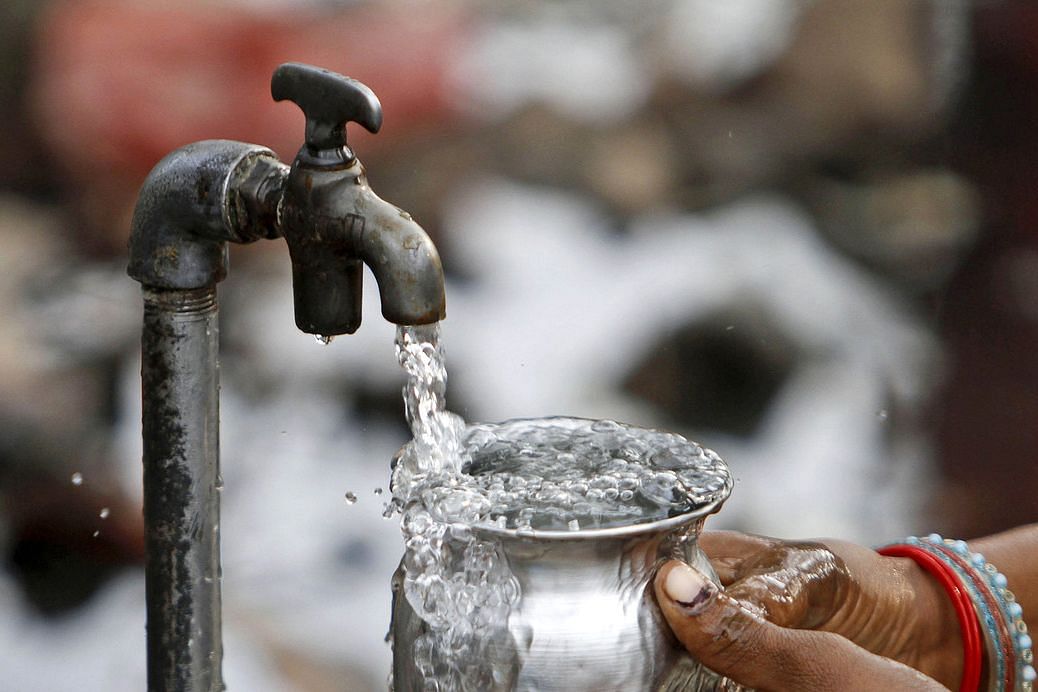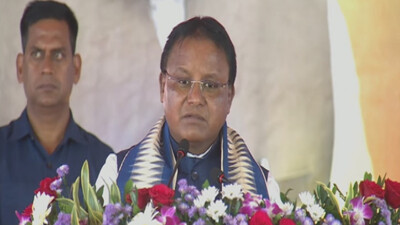New Delhi: With a focus to expedite the implementation of the Jal Jeevan Mission in Jammu & Kashmir, the Government of India released Rs 604 Crore to the Union Territory.
Central fund of Rs 2,747 crore has been allocated to the UT in 2021-22 for the implementation of Jal Jeevan Mission, which is nearly four times the allocation made during 2020-21.
J&K plans to become ‘Har Ghar Jal’ UT by August, 2022. Out of 18.35 lakh rural households in the UT, 10.39 lakh (57%) households have tap water connections. Despite adverse weather conditions and challenges of transportation in many areas in this difficult terrain, water supply work is in full swing to make provision of tap water supply in villages. Provision has been made for tap water supply to every rural household in 2 districts of Srinagar and Ganderbal and 1,070 villages.
Union Government led by Prime Minister Narendra Modi accords top priority to make provision of tap water connection in every rural household across the country under Jal Jeevan Mission as there is a massive increase in budgetary allocation to Rs. 2,747.17 Crore in 2021-22, from Rs. 681.77 Crore in the preceding year.
Jal Jeevan Mission is implemented in a decentralized manner following the ‘bottom-up’ approach, wherein the local village community plays a key role starting from planning to implementation and from management to operation & maintenance. For this, the State undertakes activities like strengthening the PaniSamiti and developing Village Action Plan as well as approving the same in the Gram Sabha, wherein the community deliberates on water supply schemes to be implemented for them. The programme encourages participation by women as they are the primary water managers in any household. Implementing Support Agencies (ISAs) are engaged by the department to create awareness in public about the mission, sensitize them about importance of safe water, engage with the community and extend support to the Panchayati Raj institutions for implementation of the programme.
Efforts are made to ensure tap water availability for drinking, cooking mid-day meal, washing hands and usage in toilets in all schools and anganwadi centres. As on date all 22,421 schools (100%) and 23,926 (100%) AWCs in J&K have been provided with tap water supply.
With focus on public health, potability of water supplied is given top priority, for which more than 2,000 water quality testing laboratories in the country have been opened to general public so that people can get their water samples tested whenever they so desire at a nominal cost. J&K has 97 water testing laboratories.
At the start of the mission in 2019, out of a total of 19.20 Crore rural households in the country, only 3.23 Crore (17%) had tap water supply. Despite challenges faced due to the COVID-19 pandemic and subsequent lockdowns, over 5.42 Crore (28%) households have been provided with tap water supply since the launch of the mission. Presently, 8.65 Crore (45%) rural households receive potable water through taps. Goa, Telangana, Andaman & Nicobar Islands, Dadra & Nagar Haveli and Daman & Diu, Puducherry and Haryana have become ‘Har Ghar Jal’ State/ UT i.e. 100% rural households have tap water supply in their homes. Following the principle of Prime Minister’s vision of ‘SabkaSaath, SabkaVikas, SabkaVishwas, SabkaPrayas’, the motto of the mission is that ‘no one is left out’ and every rural household is provided with tap water connection.
At present, every household in 83 districts and more than 1.28 lakh villages are receiving tap water supply.


















